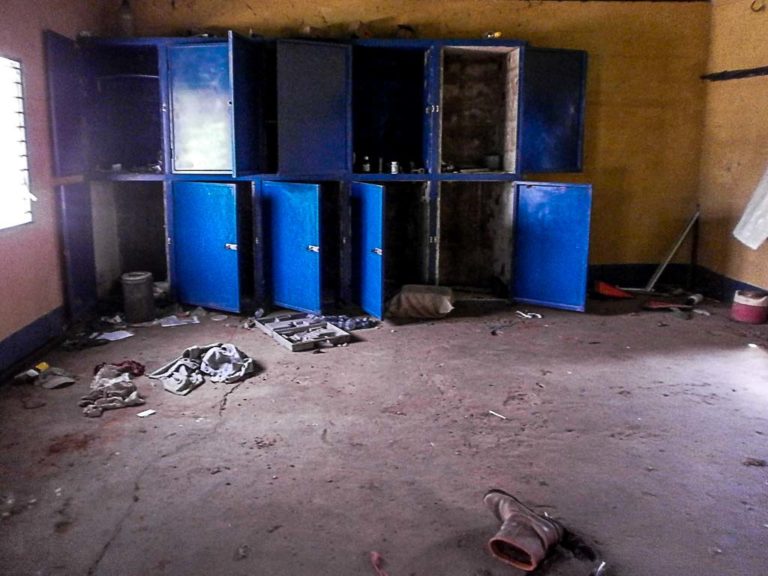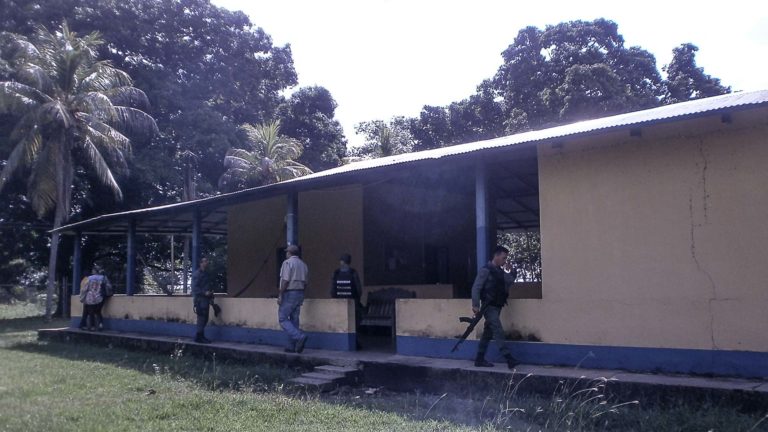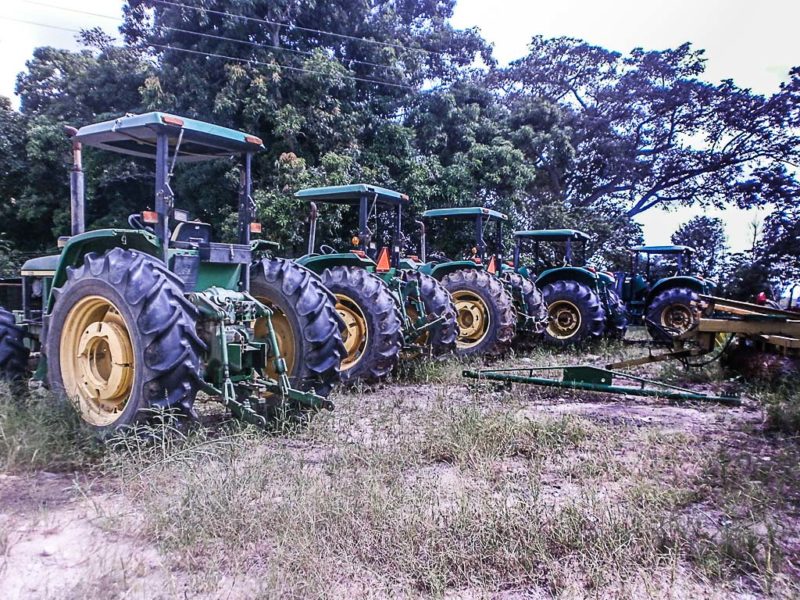Chronicles of Us: Scorched Earth
This story is one of many showing how the chavista regime used a combination of anarchy and legality to take over productive lands, just to leave them in ruins.


Photos: Marieva Fermín
Many in Barinas liked and respected Guillermo Febres. He lived with his family in a humble house at the colonial area of the largest city of the Venezuelan Western plains. They knew about his long days in the land that his family owned since 1844. A descendant of General Isilio Febres-Cordero Montero—president of Zamora State, as it was called in the first decade of the 20th century—Febres was raised in a family that taught him to love the land, to care for it with tenacity, something he passed on to his children.
In 1997, when he died at 71, he couldn’t have known that the so-called Bolivarian Revolution would be installed the following year, and it’d go after all he had worked for. His brothers, children and heirs, however, would see it happen.
They all had different careers, but they were all devoted to agriculture and cattle and, little by little, they modernized the equipment required to work their lands. Having to sell their father’s legacy is something that never crossed their minds.
In 2008, president Hugo Chávez, a Barinas-born like them, decided it’d be a good idea to build an agricultural complex in one of the Febres farms, Hato Garzas. The caudillo wanted it to be part of a great project, Pdvsa Agrícola, and the brothers could either sell the land to Pdvsa or watch the government expropriate it, as it had already done to many farms in the country.

On that same May of 2018, a new battle began, this time against invaders at another property: La Trinidad. Photo: Marieva Fermín.
The brothers took the first option, after long talks. Marisela, one of the heirs and wife of a former Barinas governor, was in charge of the negotiation and the Hato Garzas became the Western Bovine Socialist Integral Complex. Of course the siblings were sour, forced out of their property; they kept photos of Hato Garzas, but they never stepped on it again, focusing on their other estates, thinking they’d never go through anything like this again.
The Sacking of La Primavera
In February 2016, a group of people broke into La Primavera, another of the family’s farms, looking to settle in. Near the city of Barinas, La Primavera produced over three tonnes of corn a year, housing over 200 hectares of yucca, as well. It even had cutting edge artificial insemination equipment for bovines, and raised optimal genetics cattle for milk production.
The Febres weren’t ready to lose it, so they fought at the National Estate Institute (INTI), at farming courts, at the governor’s Executive Office for Citizen Security, at the National Guard and the Integral Development Zone (ZODI). It took them four months to prove their case: The land had been owned by the family since 1844, as registered in the state’s records. The INTI issued a certificate that classified it as an “improvable farm” and demanded the occupants —members of 19 “agricultural co-ops”—to leave.
It wasn’t enough.
The invaders attacked everyone they saw on the land, and neither the owners nor their workers could walk around the property. In October 2017, around 20 armed men broke into a shed and stole a tractor. Days later, they stole the truck used to drive the workers home. The family only kept essential personnel in the farm, the bare minimum to keep production going and clear the fields and, one Friday afternoon, one of those workers called Marisela on the phone.
—Armed men got here on motorbikes and broke into the main house—was all he could say.
The workers were threatened, beaten and tied. The thugs wrecked everything: They took batteries, the start engines and the oil for machinery, poison for pests and all the tools of a productive farm.
Marisela went to the Security and Public Order headquarters, but there was nobody to help her. The INTI’s director then made a call from his very office to a man named “Gudiño,” apparently in charge of the raid.

The invaders aren’t on the land anymore, but they kill two or three steers every week. No one knows how or when this will stop. Not even the authorities. Phoro: Marieva Fermín.
—Leave the premises—he ordered.
Almost 72 hours later, the National Guard and other State security officers stepped in. The assailants had almost three days to loot, while the Febres got the workers out. They took a fridge, lightbulbs, ceilings, a TV, kitchen tools, lamps, three power transformers, wires, windows…
The family didn’t return to La Primavera, but they were shocked all the same when, on May 3rd, 2018, the INTI, the same institution that certified their ownership of the land, granted the invaders the right to remain in the 749 hectares, with a measure that made it seem like the land was owned by the State.
In what used to be a prosperous land, there’s only esplanades swallowed by weeds and undergrowth now.
The Siege of La Trinidad
On that same May of 2018, a new battle began, this time against invaders at another property: La Trinidad. Isilio Febres Villalba, the brother running that estate, had to prove again the family’s ownership of the land.
Three other illegal invasions came, by groups building shacks of plastic with tin roofs, from the very entrance to the farm and all over the land. Every pole and every shack marked the “private property” of each invader, and they started planting yucca, plantain or topocho, as a sign that they were making someone else’s land productive.
In October 2018, the worker in charge of La Trinidad called his boss to let him know that a group from the three invading co-op boards broke into the workers’ house, beat, tied and robbed them, and took the milking equipment, live cattle, electrical fences, 500 samples of sperm for insemination, welding equipment, engines, an electric pump and the fridge’s engine.

Hato La Trinidad still belongs to the Febres Villalba siblings, but all they really have is a document. Photo: Marieva Fermín.
The act played the same, as the family reached every institution they’d been to before. All for naught.
Hato La Trinidad still belongs to the Febres Villalba siblings, but all they really have is a document. The invaders aren’t on the land anymore, but they kill two or three steers every week. No one knows how or when this will stop. Not even the authorities…
This piece, originally published in Spanish in La Vida de Nos, was produced in the workshop La Vida de Nos Itinerante, where many authors all around Venezuela learn how to collect and write real-life stories.
Caracas Chronicles is 100% reader-supported.
We’ve been able to hang on for 22 years in one of the craziest media landscapes in the world. We’ve seen different media outlets in Venezuela (and abroad) closing shop, something we’re looking to avoid at all costs. Your collaboration goes a long way in helping us weather the storm.
Donate




